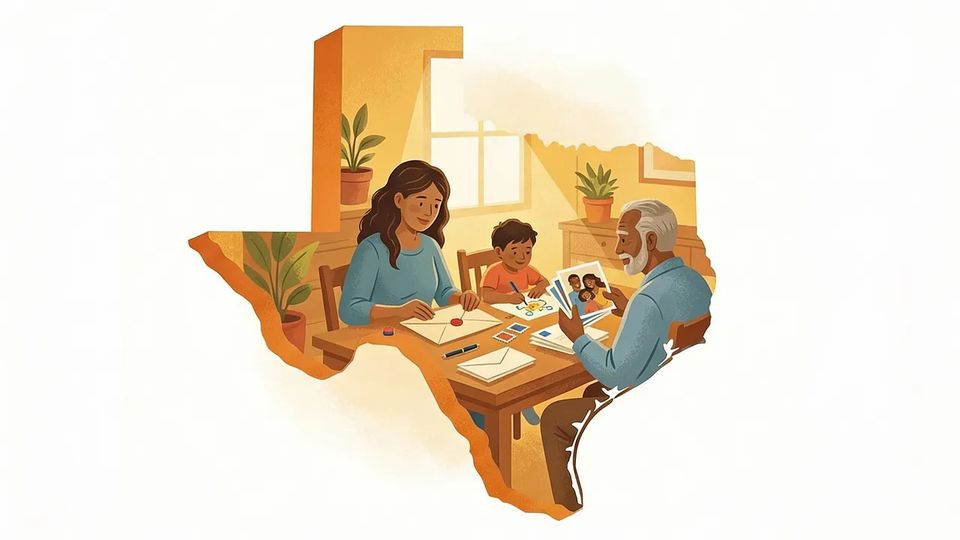
Texas
If your loved one is incarcerated in Texas, getting the basics right the first time will save you a lot of frustration: phone registration, the correct mail address, approved sender rules for money, and the visitation scheduler. Use the sections below as a practical setup guide you can return to whenever something changes.
Phone & Messaging
To receive phone calls from someone in a Texas Department of Criminal Justice (TDCJ) unit, you need to register your phone number online. You'll need the...
Read guideFacility Info
Before you mail anything, send money, or plan a trip, confirm where your loved one is housed and which agency is holding them. Texas has both TDCJ...
Read guideMail & Photos
TDCJ uses a digital mail platform. As of September 6, 2023, incoming personal mail goes to a Digital Mail Processing Center, where staff sort, scan, and...
Read guideSending Money
In TDCJ, not everyone can put money on an inmate's account. Since September 1, 2020, only approved senders (people on the inmate's approved visitor list or...
Read guideVisitation
In Texas, visitation is a privilege. It can be restricted temporarily because of rule violations, security concerns, lockdowns, serious incidents, or a...
Read guideQuick pre-contact checklist for calls, mail, money, and visits
Register your phone number online using the inmate’s TDCJ ID, so you can receive calls. Remember phone access basics: phones are generally available 5:00...
Read guideFind an Inmate
Search for a loved one and send messages and photos in minutes.

Common Questions
Q
How do I register to receive phone calls from an inmate?
Register your phone number online using the inmate’s TDCJ ID number. Make sure the name on your driver license or state ID matches the name on your telephone listing or bill, or your number may not be eligible. Phones are generally available 5:00 a.m. to 12:00 a.m., calls are limited to 30 minutes, and calls (except to the attorney of record) can be monitored and recorded.
Q
Where should I send letters or printed photos for an inmate?
Send letters and printed photos to TDCJ’s Digital Mail Processing Center using this format: Texas Department of Criminal Justice, Inmate’s Full First and Last Name + TDCJ Number, PO Box 660400, Dallas, TX 75266-0400. Including the inmate’s full name and TDCJ number helps the mail get matched correctly for scanning and upload.
Q
Can I send packages or books directly to an inmate?
For TDCJ’s digital mail system, certain items are exceptions and should be sent directly to the unit, not to the Digital Mail Processing Center. Those exceptions include books, magazines, packages, and other subscriptions from verified publishers, along with legal mail and media mail. If your loved one is in federal custody (BOP) instead of TDCJ, publications and packages can have additional restrictions, including publisher-only rules for hardcovers.
Q
Who is allowed to deposit money into an inmate's account?
In TDCJ, only approved senders can deposit funds: you must be on the inmate’s approved visitor list or on the Inmate Telephone List. Cash and personal checks are not accepted for trust fund deposits and will be returned.
